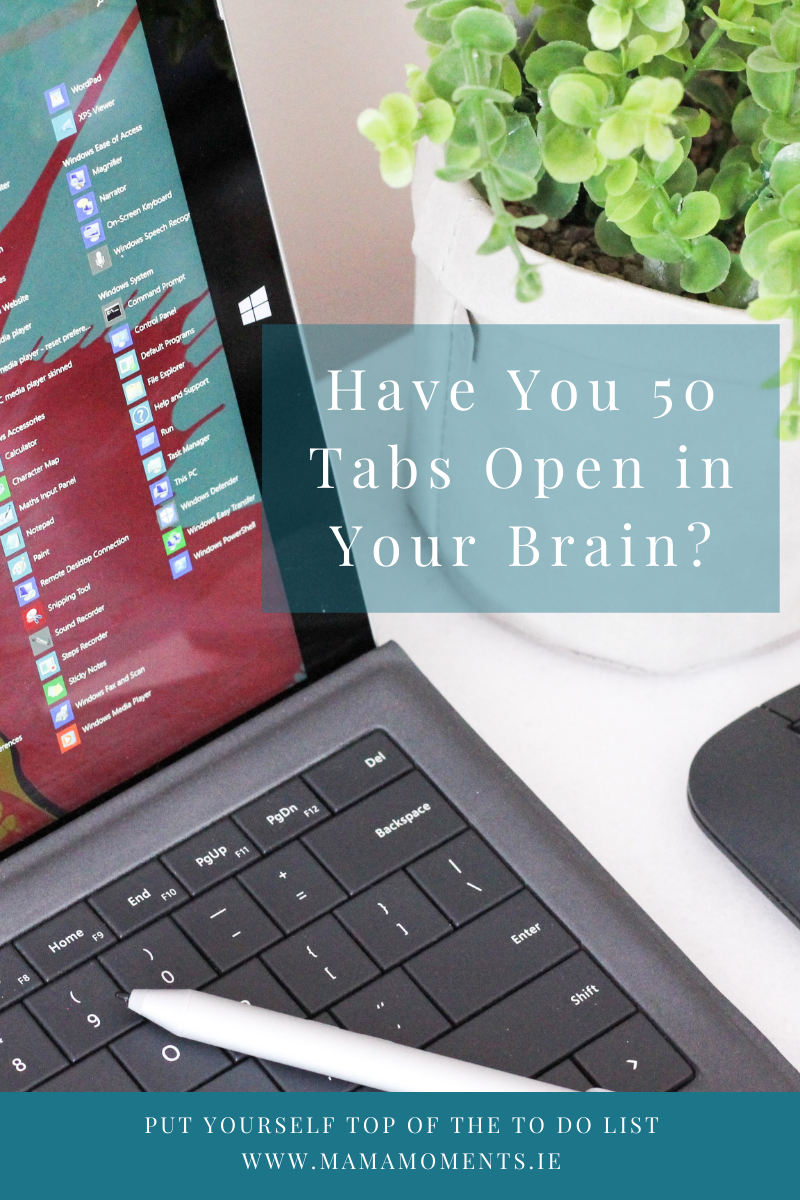
We often think our brains are surprisingly good at multitasking. It turns out, multitasking is not necessarily the best way to go about our day. When we try to achieve too much, we have a natural tendency to hop from one thing to the next. We think we’re doing great by doing more than one thing at a time, but what we’re doing is task switching and we’re not so good at that. Basically, it’s exhausting and usually ends up with a job half done.
Think of it as though we are a human computer which finds it difficult to switch off because there is so much we need to do and can do. But like any computer we have our limits. Did you know you can’t have more than 50 tabs open on your web browser? Why do we expect to be able to do more than a computer? It’s time we learn how to close a tab or two, or twenty.
What is Task Switching?
I’ve said it before, and I’ll say it again. Life is busy. We all have so much going on between school drop offs, remembering something for show and tell, balancing work loads and schedules and making sure everyone is topped up with their vitamins C and D for the day. Many think I am working all of the time, but the reality is that it’s fairly impossible to keep up the momentum of work as well as being the primary care giver of our kids. I work on average four to five hours a day despite it seeming as though I’m constantly in Mama Moments mode between the subscription boxes, the monthly workshops and the 30-Day Step into Your Purpose Programme. I’m fairly active online also but there are limits to how much of my day is dedicated to work and how many tabs I have open.
You would imagine my internal computer is lighting up with enormous tabs and my brain is constantly sending me little reminders of what I need to be doing. You would also imagine that I am the queen of multitasking but like anyone, I can struggle with this, but I have sought out solutions to close those tabs and reframe my focus. One such thing is the weekly reset which I talk about here and also the “Ta Da” list which I also talk about on the blog.
Multitasking is all well and good when we think its working but when we’re overloaded, the truth is we’re not so much multitasking as we are frantically task switching. We jump from task to task and often lose focus or concentration. The work is either not done, or we’re overburdened and our attempts at fulfilling the task are inadequate. So we start again, and the cycle continues as more tabs open and more thoughts creep in. And we jump and hop and fall from one task to another. Task switching and multitasking sounds like we’ve absolutely upped our game and managing so much. The reality is, we’re jeopardising our chances of getting anything done and probably stressing ourselves out at the same time.
Closing those Tabs
Our brains are not designed to process so much information in one go. So, how do we close the tabs and transfer those internal tasks to something much more achievable? When we think of a supercomputer, the image of thousands of never-ending filing cabinets comes to mind. That’s pretty much what it’s like in our heads (in a considerably basic and simplified way!) To close those tabs, we need to get organised and file away what is not needed right away.
- Try A Brain Dump
We can’t get organised until we know what to organise. We don’t go into the kid’s playroom and organise the toys after the kids have thrown them all randomly into boxes. We dump everything out first and sort it all out. This is exactly what we need to do with our brains. A good old brain dump.
For some reason using pen and paper is the best and most satisfying way to do dump everything out of our minds. A brain dump is basically writing everything down and getting it out of your head so you can organise it. We can’t organise what we can’t see, so by putting everything down on paper we have a clearer idea of what needs to be done. Start off with the big stuff and keep going until your mind feels clear and empty. And then think a little more because there’s bound to be something you’ve forgotten.
- Find Your System
Once you have turned that white sheet of paper into a mountain of black or blue, find a system which works for you to organise that enormous brain dump.
This can include:
- A written weekly schedule of places to be, strategically placed on the fridge as a reminder of who needs to be where during the week.
- A weekly meal plan with ideas for breakfasts and dinners laid out for the entire week. Having this written down takes away the pressure of thinking what to do on a worn-out wet Wednesday.
- A work schedule, especially if you work from home, highlighting the important upcoming meetings, tasks, or deadlines.
Dumping, organising, and closing those tabs is a great way to relieve stress, avoid pressure and improve your productivity. You may not think you need to be as ruthless as this but next time you feel yourself overburdened and chopping and changing from task to task with nothing seemingly being done, dump it all. See if closing those tabs improves your mood, and concentration. Remember, we can only do so much!

